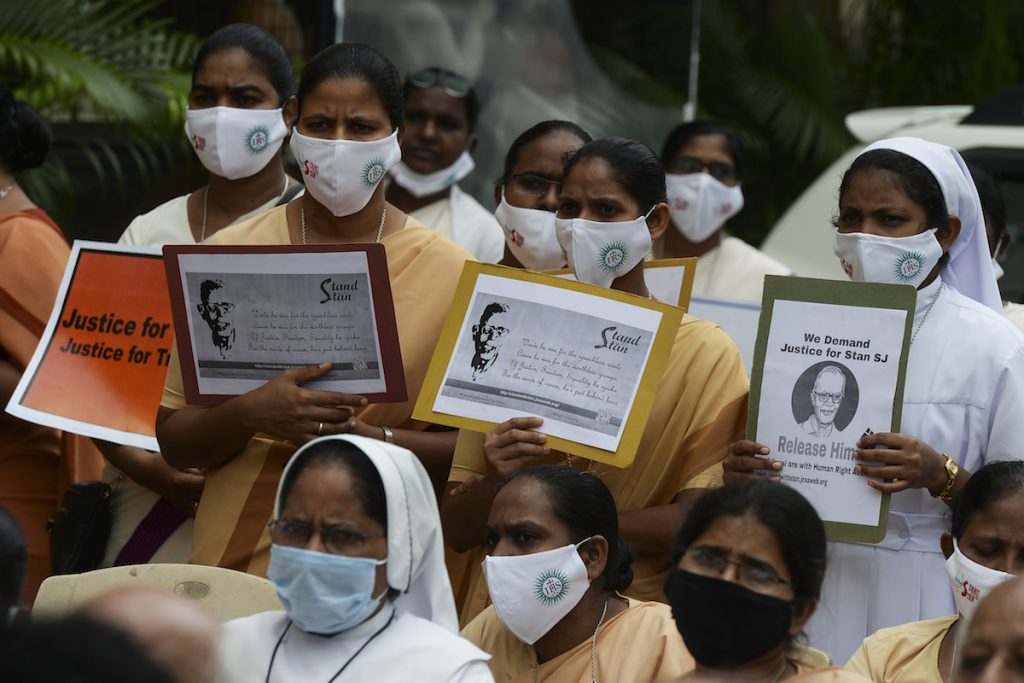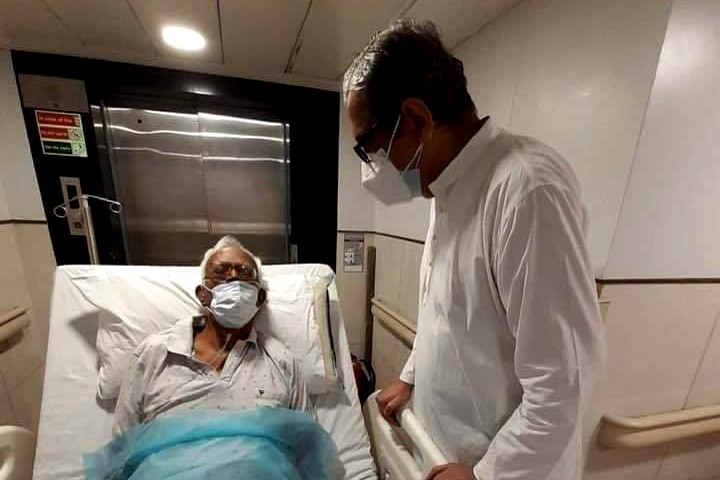Detained Indian Jesuit priest Stanislaus Lourduswamy, known as Stan Swamy, has been granted an extended hospital stay by the Bombay High Court on June 17.
The court said Father Swamy can stay in the private hospital until July 5 after a review of his medical condition.
The 84-year-old priest is reportedly still in critical condition and requires intensive care.
“In view of aforesaid report, we deem it appropriate to extend the admission of the appellant in Holy Family Hospital Bandra in terms of orders passed by this court on May 28, 2021 till July 5, 2021. Appeal be listed on July 3,” read the court order.
The court has also directed the hospital to forward copies of the priest’s medical report to the lawyers of Father Swamy and to government counsels.
On May 28, the Bombay High Court directed the Maharashtra government to transfer the priest to the Holy Family Hospital from Taloja Central Jail.
On June 10, the court extended the private hospital stay until June 18 after the court was informed the priest had tested positive for COVID-19.
Lawyers have repeatedly appealed for the release of Father Swamy on humanitarian grounds.
In March, the court refused to grant bail to Father Swamy, saying that the petition presented by the lawyers were “inadmissible.”
The priest, a known tribal rights activist, was arrested by India’s National Investigation Agency on Oct. 8, 2020.
He was living in Ranchi, capital of Jharkhand state in Eastern India, during the time of his arrest and was brought to Mumbai, about 1,750 km southwest.
He was placed in judicial custody in Taloja Central Jail near Mumbai after he was charged under various sections of the Indian Penal Code.

The priest was accused of terror-related offenses under the Unlawful Activities (Prevention) Act for allegedly furthering the cause of banned communist groups through his civil rights organizations.
Authorities tagged the priest’s Persecuted Political Prisoners Solidarity Committee, a human rights organization, as a front organization of Maoist and extremist groups.
The Bagaicha, an organization established by Father Swamy to empower the tribal group Adivbasis, was also tagged as a communist front.
Father Swamy is the oldest person in the country to face terror-related charges and he has joined 15 others including human rights activists, journalists and scholars arrested in connection to a 2018 incident of caste-based violence known locally as the Bhima Koregaon case.
The priest’s supporters said he is being branded as an anti-nationalist and was jailed because he was fighting for the implementation of laws passed by the parliament for tribal people and their constitutional rights.
On Oct. 26 last year, the Federation of Asian Bishops’ Conferences called for his immediate release; following a similar statement issued by Indian bishops.
India’s National Crime Records Bureau showed that as many as 5,922 people were held under the country’s Unlawful Activities (Prevention) Act between 2016-2019, with only 132 convictions.
The draconian law has come under severe criticism from international observers in recent years, as has India’s human rights record since the Bharatiya Janata Party came into power.
In a recent “Freedom in the World Report 2021” by Freedom House, the country was downgraded from “free” to “partly free” for the first time.







